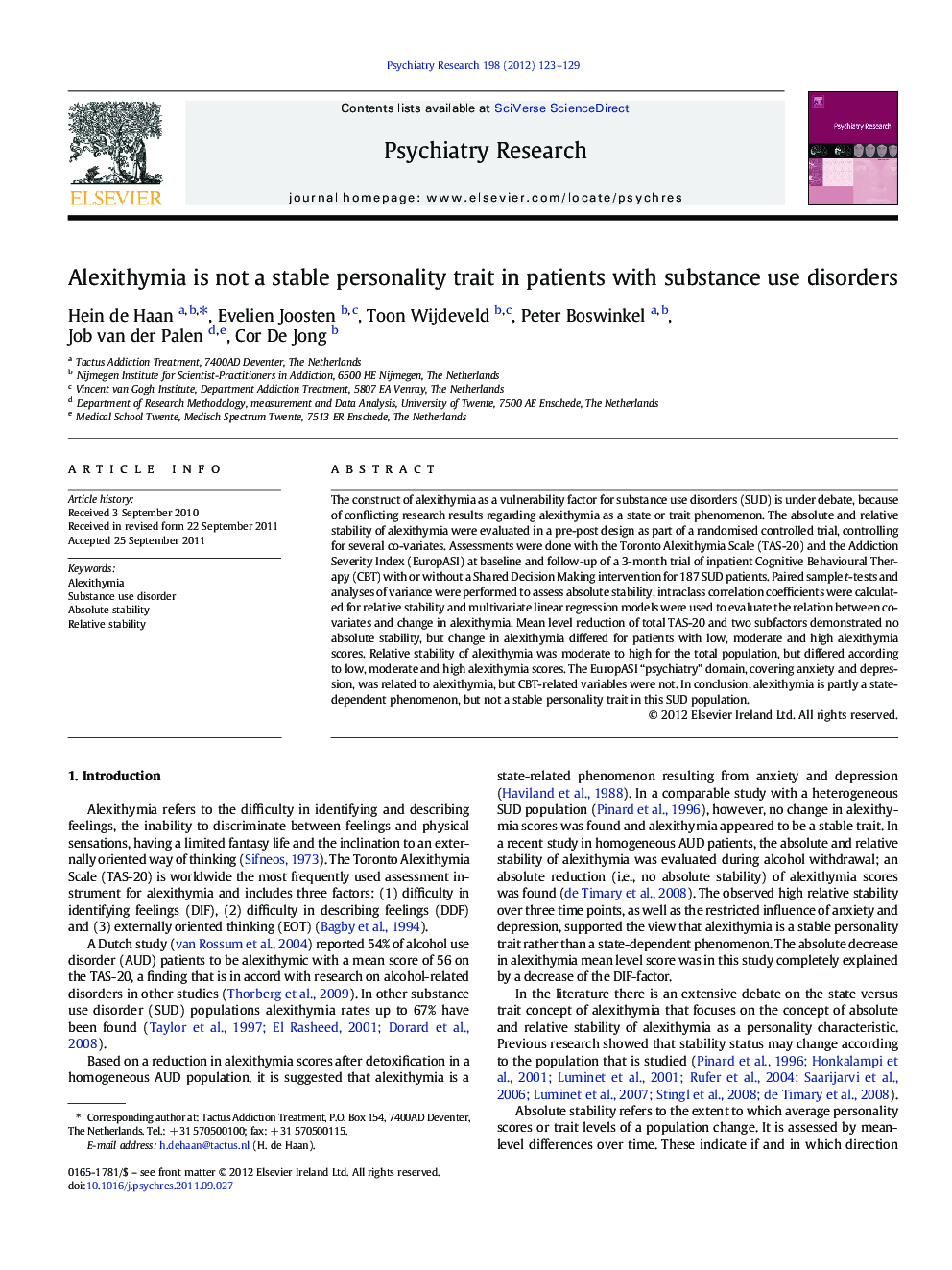| Article ID | Journal | Published Year | Pages | File Type |
|---|---|---|---|---|
| 10304013 | Psychiatry Research | 2012 | 7 Pages |
Abstract
The construct of alexithymia as a vulnerability factor for substance use disorders (SUD) is under debate, because of conflicting research results regarding alexithymia as a state or trait phenomenon. The absolute and relative stability of alexithymia were evaluated in a pre-post design as part of a randomised controlled trial, controlling for several co-variates. Assessments were done with the Toronto Alexithymia Scale (TAS-20) and the Addiction Severity Index (EuropASI) at baseline and follow-up of a 3-month trial of inpatient Cognitive Behavioural Therapy (CBT) with or without a Shared Decision Making intervention for 187 SUD patients. Paired sample t-tests and analyses of variance were performed to assess absolute stability, intraclass correlation coefficients were calculated for relative stability and multivariate linear regression models were used to evaluate the relation between co-variates and change in alexithymia. Mean level reduction of total TAS-20 and two subfactors demonstrated no absolute stability, but change in alexithymia differed for patients with low, moderate and high alexithymia scores. Relative stability of alexithymia was moderate to high for the total population, but differed according to low, moderate and high alexithymia scores. The EuropASI “psychiatry” domain, covering anxiety and depression, was related to alexithymia, but CBT-related variables were not. In conclusion, alexithymia is partly a state-dependent phenomenon, but not a stable personality trait in this SUD population.
Related Topics
Life Sciences
Neuroscience
Biological Psychiatry
Authors
Hein de Haan, Evelien Joosten, Toon Wijdeveld, Peter Boswinkel, Job van der Palen, Cor De Jong,
